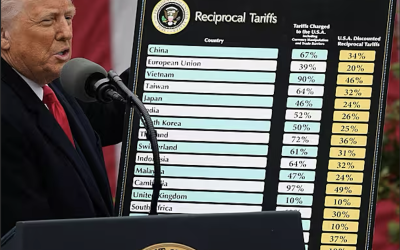The 2027 EU Battery Regulation is set to reshape the battery value chain, placing new requirements on traceability, carbon footprint reporting, and end-of-life management for all batteries above 2kWh. Any company making or importing batteries into the EU will have to comply – there is no way around it.
While many businesses view compliance as a regulatory burden, those that prepare early will gain a competitive edge in supply chain management, operational efficiency, and cost reduction.
One of the most critical changes? The Digital Battery Passport (DBP). This digital record for each battery will contain essential data on origin, composition, performance, and lifecycle status. Beyond satisfying compliance, smart manufacturers, suppliers, and OEMs can leverage DBPs to optimize operations and reduce risks.
Why Early DBP Adoption is a Competitive Advantage?
Adopting the Digital Battery Passport (DBP) early is not just about meeting regulations – it is about gaining a real business edge. With DBP, companies can track materials more effectively, ensuring responsible sourcing and streamlining supplier verification. This reduces risk, minimizes waste, and improves overall supply chain efficiency.
Businesses that prepare for DBP now will be ahead of regulatory pressure, positioning themselves as industry leaders while strengthening relationships with customers and suppliers. Instead of reacting to compliance demands, they can proactively build trust and credibility in the market.
Operationally, integrating DBP early allows manufacturers to optimize lifecycle planning, improve second-life battery applications, and reduce long-term costs. By embedding traceability and efficiency from the start, companies not only future-proof their production lines but also create leaner, more profitable operations.
Why Seraph? Driving Manufacturing & Cost Efficiencies
The 2027 EU Battery Regulation and Digital Battery Passport (DBP) rollout won’t just affect compliance teams—it will significantly change day-to-day manufacturing operations. For battery producers, OEMs, and supply chain managers, the manufacturing floor will need to adapt to new data tracking, reporting, and operational efficiency requirements.
Seraph helps manufacturers prepare for these changes, integrate DBP requirements into their workflows on the manufacturing floors, and turn compliance into operational efficiency gains.
What might change on the manufacturing floor?
With DBP becoming mandatory, battery manufacturers will have to introduce new data capture points, traceability systems, and reporting mechanisms across production lines. The key changes might include:
Enhanced Data Capture & Traceability at Every Stage
Imagine you are on the factory floor, assembling battery units as usual – but now, every single battery must have a unique digital identity from the moment it is made. This is not just a sticker or a serial number – this ID links to where the materials came from, the energy used in production, and its entire lifecycle, from first use to recycling.
- Because manufacturers will need to assign these digital IDs (DBPs) to every battery unit, this means new scanning, labeling, and data entry steps will be built into production lines
- Also, because real-time tracking tools like QR codes, RFID tags, or blockchain-based systems may become standard, this means operators and machines must ensure each unit is correctly tagged and its data is instantly uploaded
- Finally, because suppliers of lithium, nickel, and cobalt must now provide traceability data, this means procurement teams and factory systems need better integration—so materials with incomplete records don’t slow down production
What does this mean for manufacturers? Production systems (MES, ERP) will need upgrades to handle DBP data without causing bottlenecks. The challenge is making this seamless, so compliance does not come at the cost of efficiency.
Adjusted Production Workflows & Quality Control
Picture this – you are working on the battery assembly line, but now, at every stage, the system needs to confirm compliance before moving forward. It is no longer just about meeting production targets; if data does not check out, that battery won’t make it to market.
- Because compliance checks must happen in real time at multiple stages – raw materials, cell production, and final assembly – this means operators and machines will need to verify and log data at each step before moving on
- Also, because carbon footprint calculations are now part of live production tracking, this means energy use, material consumption, and emissions data must be automatically captured and reported as part of daily operations
- Finally, because end-of-line testing must ensure DBP compliance, this means any inconsistencies in traceability or reporting could result in production delays or batteries being blocked from EU markets
What does this mean for manufacturers? Balancing production speed with compliance will be critical. Automated data collection systems must work smoothly to prevent bottlenecks, ensuring traceability doesn’t slow down efficiency.
Integration of Battery Lifecycle & Circularity Considerations
Now, think about how batteries are built today – for the most part, they are (still) designed for first use, with a little thought about what happens after. With DBP, manufacturers must start considering a battery’s entire lifecycle right from production.
- Because DBP will track battery lifespan, usage history, and second-life potential from the start, this means manufacturers must input long-term performance data, not just initial quality checks
- Yet, because battery designs must shift to allow easier material recovery, e.g. replacing adhesives with modular components, this means design teams must rethink how battery packs are structured, using fewer permanent adhesives and more modular components
- Finally, testing is not just about first use anymore. Manufacturers will need to assess how well batteries perform for reuse, whether in energy storage or other applications
What does this mean for manufacturers? Battery design and production will need to evolve – moving away from one-time use models toward modular, repairable, and recyclable designs that extend value beyond the first life cycle.
How DBP Will Reduce Manufacturing & Compliance Costs
DBP is not just a compliance tool – it is a way to future-proof operations and cut long-term costs. Manufacturers that integrate DBP early will avoid expensive last-minute adjustments and reduce manual compliance efforts by automating data collection and reporting.
Real-time tracking of materials and production steps will help eliminate inefficiencies, reducing waste and optimizing supply chains. By designing batteries for second-life reuse from the start, manufacturers can cut material costs and extend profitability beyond first use.
Seraph Turns Compliance into Operational Excellence
Regulations don’t have to be a roadblock – if integrated correctly, they can drive efficiency and cost savings. Seraph works with manufacturers to ensure DBP adoption enhances production workflows instead of disrupting them. From real-time data tracking to streamlined compliance, we help businesses turn regulatory requirements into a competitive advantage. The companies that move early won’t just meet 2027 standards – they will lead the future of battery production.
Ready to make DBP an advantage for your business? Let’s talk https://seraph.com/contact/
About Seraph
Seraph is a global operations and strategy consulting firm, that leads value chain improvements, restructurings, and turnarounds. We unite the disparate roles in operationally intensive businesses to create efficient operations, bridging the divide from concept to production. High-level decision-makers in manufacturing and industrial organizations rely on us to solve complex issues and launch initiatives that ensure success and sustainable change.
Seraph is a member of the BASE Battery Passport for Transparency and Circularity consortium.

The BASE project has received funding from the Horizon Europe Framework Programme (HORIZON) Research and Innovation Actions under grant agreement No 101157200
Visit the BASE website here: https://base-digibattpass.eu/





